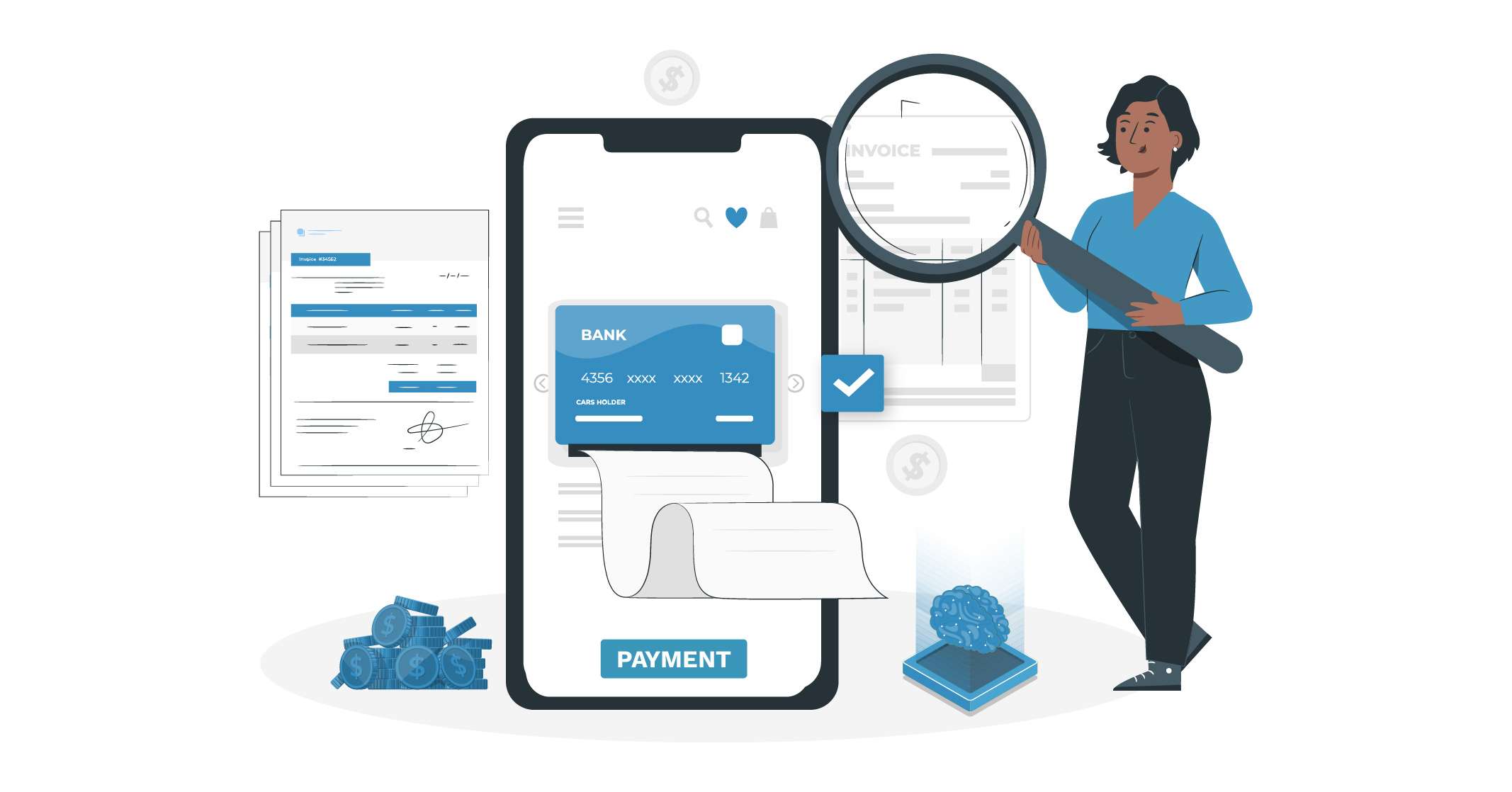For large enterprises, managing accounts payable (AP) is more than just tracking invoices and payments—it’s about maintaining financial accuracy, ensuring compliance, and preventing costly mistakes. One wrong move in handling payments, missing an invoice, or overpaying vendors can lead to significant financial losses. AP auditing is the safeguard that allows enterprises to prevent errors, detect fraud, and streamline processes.
With companies losing up to 5% of revenue annually to fraud, AP audits are essential for large businesses to protect their financial health. This guide will break down the AP auditing process, discuss best practices, and provide insights on how to implement a robust audit framework to minimize risks and improve financial oversight.
Why AP Auditing is Crucial for Large Enterprises

Managing AP for large enterprises involves more than just ensuring payments are made on time. Here’s why AP auditing is essential:
- Prevent Financial Loss: Duplicate payments, overpayments, and unauthorized expenditures are common risks in enterprise-level AP systems. These small errors, if not caught, can cost millions annually.
- Fraud Detection: Fraud, especially internal fraud, is a serious concern. AP auditing can uncover suspicious activity, including falsified invoices or unauthorized payments.
- Compliance Assurance: Enterprises comply with internal policies and external regulations, such as tax laws or industry-specific standards. Regular audits ensure that payment processes meet these requirements, avoiding penalties.
- Cash Flow Control: AP audits provide better visibility into outgoing payments, helping enterprises manage cash flow, take advantage of early payment discounts, and avoid late fees.
- Vendor Relationships: Timely and accurate payments enhance relationships with vendors, ensuring smoother operations and avoiding disputes over incorrect or late payments.
Streamline Your Invoicing with Serina – The Smart Choice for invoice automation software
Step-by-Step Process for AP Auditing
Collect and Organize Documentation
The foundation of any audit is documentation. Without proper records, identifying mistakes, fraud, or process inefficiencies becomes nearly impossible.
Documents to gather include:
- Invoices: Ensure every invoice has a corresponding purchase order (PO) and receipt of goods.
- Purchase Orders: These documents show the original order request, including pricing, quantity, and approval.
- Payment receipts: These verify that payments were processed according to the agreed-upon terms.
- Approval Records: Make sure every payment is backed by proper authorization from management.
- Maintaining organized and accessible documentation is key to a smooth auditing process.
Verify Invoice Accuracy and Matching
Accurate invoicing is essential to avoiding overpayments or paying for goods not received. This is where three-way matching becomes critical—comparing invoices, purchase orders, and goods receipts.
Key checks include:
- Invoice amounts: Verify that the amounts billed match the purchase order and delivery receipt.
- Payment Terms: Ensure payments align with contract terms and that any early payment discounts are applied.
- Goods or Service Delivery: Check if the goods or services were delivered as billed before payment was processed.
Proper invoice matching helps eliminate overpayments, fraud, and unapproved cost increases.
Review Payment Authorization Processes
Each payment made should be properly authorized. This ensures that no unauthorized payments slip through and that all approvals align with the company’s internal policy.
Key areas to review:
- Approval Limits: Verify that the individual approving the payment had the authority based on the company’s approval matrix.
- Multi-level Approvals: Ensure that large payments undergo multiple layers of approval.
- Exception Handling: Investigate any payments that bypassed the normal approval process and determine if they were justified.
Ensuring payments are properly authorized is crucial for fraud prevention and financial control.
Check for Duplicate Payments
Duplicate payments can slip through the cracks, especially in large enterprises that handle hundreds or thousands of invoices every month.
How to detect duplicates:
- Run automated checks: Use AP software to flag duplicate invoice numbers, amounts, and payment dates.
- Manual review: Perform manual checks for flagged transactions to ensure they aren’t overlooked.
- Compare vendor accounts: Reconcile internal payment records with vendor statements to ensure that no payments were made twice.
Catching duplicate payments early prevents significant financial loss and preserves cash flow.
Best Practices for Effective AP Auditing

Automate AP Processes
Automation helps eliminate many of the human errors and inefficiencies that plague manual AP processes. Using advanced AP software can streamline auditing efforts.
Benefits of automation:
- Invoice Matching: Automatically match invoices with POs and goods receipts, reducing manual verification time.
- Duplicate Detection: AP software flags potential duplicate payments, making it easier to catch them.
- Compliance Tracking: Automation tools can ensure compliance with tax laws, regulatory standards, and internal policies.
Automating AP processes not only reduces errors but also speeds up the audit process.
Centralize Vendor Management
Enterprises often work with hundreds of vendors, and managing their payment terms, contracts, and details can be overwhelming without a central system.
Vendor management best practices:
- Maintain a central vendor database: Track vendor contracts, payment terms, and banking details to streamline auditing.
- Consolidate vendor payments: Whenever possible, reduce the number of vendors to streamline payments and reduce complexity.
- Track performance: Monitor vendor payment history, including on-time payments, disputes, and credits.
Centralizing vendor management ensures consistency in auditing and reduces risks of missed payments or errors.
Conduct Regular Internal Audits
Instead of waiting for external audits, conducting quarterly internal audits helps catch issues early. These audits should focus on identifying discrepancies, improving processes, and ensuring compliance.
Benefits of regular audits:
- Early detection of issues: Spot problems before they escalate.
- Improve processes continuously: Regular audits allow for ongoing improvements in the AP process.
- Stay ahead of external audits: Ensuring internal audits are up-to-date helps avoid surprises during external audits.
- Regular internal audits improve the effectiveness of the AP process and reduce long-term risk.
Common Challenges in AP Auditing (and How to Overcome Them)

Inconsistent Approval Processes Across Departments
Different departments may follow varying procedures for approvals, which complicates the audit process and leads to missed approvals or unauthorized payments.
Solution: Implement company-wide standardized approval workflows to ensure consistency.
Manual Data Entry Errors
Enterprises that rely heavily on manual data entry face an increased risk of human error, including incorrect amounts, duplicate entries, and missed payments.
Solution: Invest in optical character recognition (OCR) software to automate data entry and reduce error rates.
Preparing for an AP Audit

To prepare for an AP audit, enterprises should follow specific steps to ensure all records are accurate, accessible, and well-organized.
Preparation steps:
- Organize all documentation: Ensure all invoices, POs, receipts, and approvals are properly filed and accessible.
- Pre-audit checkups: Conduct pre-audit reviews to resolve discrepancies before the official audit.
- Train AP teams: Ensure that your AP staff are fully trained on audit procedures and company policies.
Being well-prepared helps streamline the audit process and ensures fewer delays or issues.
Conclusion: AP Auditing is Critical for Enterprise Success
Enterprises that invest in regular audits, leverage automation, and maintain strict internal controls can safeguard their financial health and improve their vendor relationships.
Start enhancing your AP auditing processes today to prevent costly errors, optimize cash flow, and maintain compliance with regulatory requirements.

